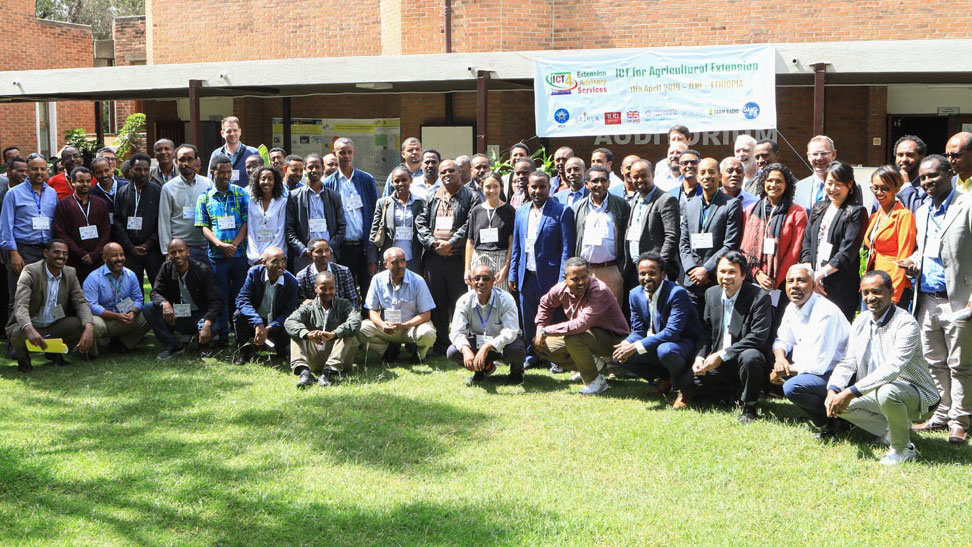
A critical issue for applied research in an international development context is to ensure that the findings are actually used to inform policy and investment decisions.
This can be a substantial challenge if research is not tied closely to issues of concern for decision-makers, or when research outputs only appear in academic journals that few get to read.
From 2015 – 2020, Tetra Tech International Development Europe delivered the £8 million Sustainable Agricultural Intensification Research and Learning in Africa programme (SAIRLA) for the UK Foreign, Commonwealth & Development Office. This programme carried out research in Burkina Faso, Ethiopia, Ghana, Malawi, Tanzania and Zambia on how smallholder farmers can produce more food from the same land, but with fewer negative environmental impacts and greater social benefits.
A central element of SAIRLA, other than the research itself, was the systematic effort to ensure the findings could be used in practice. The programme used a social learning approach to achieve this, through the mechanism of specially created National Learning Alliances (NLAs). These alliances brought together members from research organisations, the private sector, farmer organisations, local governments, NGOs, CSOs and the media.
What did we learn?
In general, linking research projects to National Learning Alliances worked well to engage decision-makers
The NLAs created an effective platform for informing national-level decision makers about research findings and tools developed by the research projects. Without the NLAs, researchers would not have had the reach or influence to access these decision-makers.
A good example is the successful collaboration between the Ethiopia NLA and the SAIRLA research project What works where for which farmer: combining big data and crowdsourcing for household-specific targeting and learning. This helped the Ethiopia Ministry of Agriculture digitise its extension advice system and developed an approach using ICT applications to target individual households with specific messages. The NLA then facilitated a social learning process with stakeholders around the project.
This collaboration led to:
- new guidelines for digitising extension support in Ethiopia,
- coordination of inputs and resources from various actors in the agricultural extension system,
- an information and knowledge platform for agricultural advice that is accessible to frontline extension workers and farmers, and
- improved access to information and advice for smallholder farmers, at a lower cost than before.
Ten other stories of change on how collaboration between the research projects and NLAs promoted successful changes can be found on the SAIRLA website.
The resources and standing of the NLA host, and the composition, skills and experience of the facilitation team are all critical to success
NLA teams needed strong communication capabilities, technical knowledge and facilitation skills. They also needed to be plugged into decision-maker networks in a range of sectors.
While SAIRLA research has informed donor and international development policies and practice, it has sometimes been less relevant to specific national priorities
For instance, while international donors use peer reviewed journal articles as a metric of quality, this may make less sense for national decision-makers. Enabling NLAs to help identify research topics might have better aligned SAIRLA’s research with the needs of the participating countries. A longer inception phase might have helped to enable a more collaborative design process.
In order to maximise uptake of findings and tools, engagement processes need to be tailored to the specific decision-makers being targeted
While SAIRLA has informed some private sector investment decisions, engaging businesses has been difficult due to the nature of both the NLA host organisations and the ‘usability’ and timing of the data emerging from the research projects. Similarly, senior decision-makers often do not have time to take part in sustained learning processes around evidence. Targeting mid-level decision-makers who provide technical briefs, reports or speeches for more senior officials was found to provide better results than focusing only on senior decision-makers.
Programmes aiming to facilitate locally-led change require strong working relationships based on mutual respect, trust and co-operation, which take time to develop
Joint problem identification, collaboration to develop and test solutions, and processes for learning and adaptation also require time and space.
The social learning process was generally effective and achieved strong outcomes in some contexts
While many useful lessons were identified, it would have been helpful for SAIRLA to have a more explicit objective from the outset to test a social learning approach at a national level.
